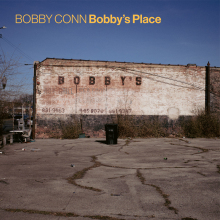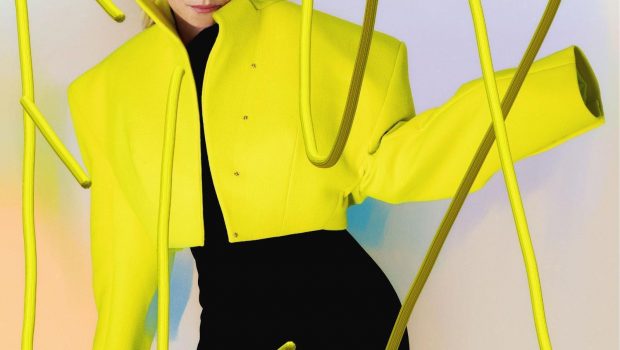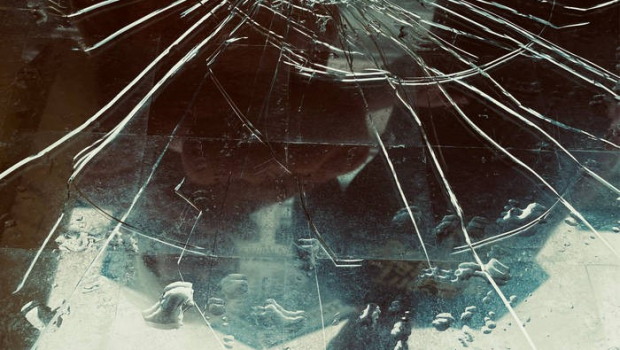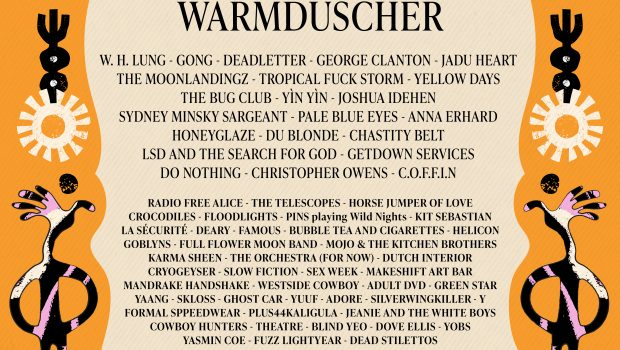 With “For Posterity” remaining one of the most played, most intriguing and definitely most enjoyed albums of 2010 thus far, we catch up with Dan Workman, the band’s lead singer, for a quick interview during his busy touring schedule:
With “For Posterity” remaining one of the most played, most intriguing and definitely most enjoyed albums of 2010 thus far, we catch up with Dan Workman, the band’s lead singer, for a quick interview during his busy touring schedule:
Hi Dan, thanks for taking time out to do this interview. How are you?
– I am very well thank you, maybe a little tired.
And what do Ten Kens have scheduled for the near future?
– Lots and lots and lots of touring.
I appreciate that you might have answered this question a few times before, but how did the band form and where does the name come from?
– Yes, have answered this question many times, so I’ll give you our now standard reply. “The name is tongue and cheek. It’s an anti-image statement or sorts. We are neither trendy nor cool, post or prog, in or out…if you can spare us the labels, we can spare you the disappointment. We choose to be defined by the music we make…anything else is just perception and projection, and that’s entirely on you. We knew what we didn’t want to be before we knew what we wanted to be. So in the end, we took the most common ‘boy in the bright white sports car’ type name, multiplied it by ten, and voila.”
What music did you love growing up?
– Admittedly, I was really into 80’s hair metal. I loved that stuff. Of course, like most students of the 90’s, the minute I heard Nirvana, everything changed.
Though we love For Posterity here at CityLifers, is it so titled because you didn’t expect anyone to immediately understand or like it?
– We knew initially, that it may be a hard listen for a lot of folks, and that it would appeal to a very select audience. Not because we think it’s that obscure, but mostly because it doesn’t really fit into the current indie music landscape. But this was of course quite intentional…only dead fish swim with the stream. We’d be more than happy with cult status, and we hope the record ages like wine…so yeah, you’re not too far off in your assumption.
How did you go about writing the album? I’ve read that you locked yourselves away for quite sometime…
– We rehearse constantly, and we work as a collective. We throw every idea against the wall and then see what sticks. It’s really that simple. We don’t allow any egos or agendas into the mix. This keeps things pure, and it eliminates any inhibitions or insecurities. Once we’ve got our core ideas, we work them over and over until we’re all in agreement that the song is finished.
Did you specifically set out to make something that sounds different to your contemporaries, or was this something that just happened naturally?
We most definitely set out to make something different. I think we’re a very reactionary band, in the sense that if we don’t like what’s happening on the scene, we take it upon ourselves to bring back the missing elements. This is why we get so many comparisons to 90’s alt-rock. These are the bands we feel set the standard for modern rock music. It was a golden age that has not since been equalled. Our goal was to capture that spirit and add our own distinctly modern vision.
There’s a real dichotomy on For Posterity, like on ‘Screaming Viking’, between ghostly, melodic moments, and riotous rock riffing…what inspired this?
– Boredom.
What are you most proud of on For Posterity?
– Really, just the fact that it got finished. We worked really hard on it, and had a lot of hurdles we needed to overcome to get here. The fact that we weathered the storm and are standing strong, record in hand, makes me feel very proud indeed.
Now something a bit more frivolous…what would you do if you weren’t in a band?
– I’m a designer/illustrator by trade, so probably that.
Where do you see yourself and Ten Kens being in ten years time?
– Still making music, and still trying to get people to listen.
Thanks for doing this interview!
– Thank you my man.












